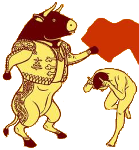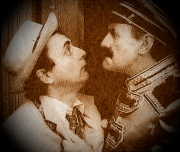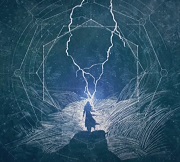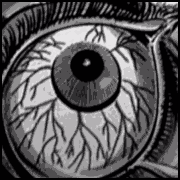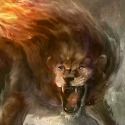|
drat
|
|
|
|

|
| # ? Jun 13, 2024 05:36 |
|
Schpyder posted:Yamaha probably have more experience making high quality musical instruments than any other company on the planet. No surprise that that expertise should carry over to the guitars they make. Yeah I always had the mental association of Yamaha = cheap guitars. https://www.youtube.com/watch?v=ApGXujZVWf4 Then I saw that video of a guy playing a $365k Yamaha piano 
|
|
|
|
My Yamaha classical was a hundred bucks and it feels and sounds better than it has any right to. Three years and I've never had an issue with it, and I don't feel nervous taking it anywhere because it was so cheap. And not a guitar question, but since this thread is much more lively than the bluegrass one: I just picked up a Fender banjo the other day, and even after a set-up the drat thing frets sharp on anything past the first fret. Is there some trick I'm not aware of for correcting this, or is it something I'll just have to deal with?
|
|
|
|
I've been working on bending for the past month or so, because I'm sloppy at tone targeting. Does anyone think it is worth strengthening up to do proper bends with a pinky? Specifically, this is coming up on the bend here: https://www.youtube.com/watch?v=6Wc13eF3hIg&t=222s In the lesson he uses his ring finger instead of his pinky on the bend on the 10th fret B string up to the 12th, but it feels more natural for me to use my pinky for the bend because it is naturally positioned above the 10th fret B string and lets me keep my index finger above the 7th fret on the high E string. My pinky is weaker than my ring finger, but it makes the move from the bend back to the 7th fret high E string much quicker. I've been practicing this transition for about a week and I've started developing tendon pain in my thumb from it. I brought it up with my instructor and he basically said, "That's because you are using your pinky for bending. Don't do that, everyone uses their ring finger." and told me to start practicing with that. What's y'all's take on that?
|
|
|
|
How tall are the frets on a usual banjo? You could just be pressing too hard.
|
|
|
|
Spanish Manlove posted:How tall are the frets on a usual banjo? You could just be pressing too hard. Banjo frets are typically very small. The issue sounds like it wasn't setup completely or the setup did not include fretwork. I've never fully setup a banjo, but there are lots and lots of parts that can be tweaked and a lot of things are variable from player to player (such as head tension, bridge height/type, etc).
|
|
|
|
Rifter17 posted:The issue sounds like it wasn't setup completely or the setup did not include fretwork. I've never fully setup a banjo, but there are lots and lots of parts that can be tweaked and a lot of things are variable from player to player (such as head tension, bridge height/type, etc). Sounds like I should find a proper luthier and have another set-up done. Banjos aren't very common around here and there's a good chance that the first guy didn't really know what he was doing.
|
|
|
|
Last night I spent the whole evening playing 'Ain't talkin 'bout Love' by VH and it was amazing. LP gunned into TS into gunned Marshall with Talisman plate reverb - holy moley.
|
|
|
|
Southern Heel posted:Last night I spent the whole evening playing 'Ain't talkin 'bout Love' by VH and it was amazing. LP gunned into TS into gunned Marshall with Talisman plate reverb - holy moley. If you don't sweat over trying to recreate the solos, Van Halen is one of the most fun bands ever, both as a listener and as a player. Eddie should get more credit for crafting hooks than showboat solos.
|
|
|
|
As I've gotten more into playing I appreciate a good riff a lot more than a solo
|
|
|
|
After The War posted:If you don't sweat over trying to recreate the solos, Van Halen is one of the most fun bands ever, both as a listener and as a player. Eddie should get more credit for crafting hooks than showboat solos. I think he'd still be recognized as one of the all-time greats if he'd never played a single solo. Dude was a great songwriter and had a really unique and creative approach to rhythm guitar.
|
|
|
|
Shugojin posted:As I've gotten more into playing I appreciate a good riff a lot more than a solo That's one of the reasons I love Megadeth. Mustaine is not particularly good at solos IMO but the man can write some seriously great riffs. Just listen to "Rust in peace", the album just goes from awesome riff to awesome riff. And Marty does some awesome solos on it as well. Also, had a fit of nostalgia and started listening to Jason Becker's "Perpetual Burn" album. God drat, the guy could shred (the arpeggio section on Altitudes is loving amazing). Looked him up to see what he was doing these days, and he apparently got ALS and can't move, much less play guitar, now. 
|
|
|
|
Jason Becker is so good and the fact that heís still so active in the industry is hugely inspiring.
|
|
|
|
Shugojin posted:As I've gotten more into playing I appreciate a good riff a lot more than a solo Mascis is in both, of course, as is Bob Mould. Clayton Bigsby posted:Also, had a fit of nostalgia and started listening to Jason Becker's "Perpetual Burn" album. God drat, the guy could shred (the arpeggio section on Altitudes is loving amazing). Looked him up to see what he was doing these days, and he apparently got ALS and can't move, much less play guitar, now. He was diagnosed a week after he joined David Lee Roth's band.  I really need to get the one album he did for DLR. I love Perpetual Burn, but never followed up on anything else.
|
|
|
|
After The War posted:I've always been a riff/progression freak, but when I think of players that I identify as "favorite guitarists," (J. Mascis, Robert Quine, David Gilmour) it's because I connect emotionally with their lead work. I guess I tend to think of "songwriter/bandleader" as a different category. I was a bit disappointed by the DLR album, but that was a hard act to follow after Vai/Sheehan. I'd recommend the Cacophony records he did with Marty Friedman.
|
|
|
|
I wish shred still had that slightly sloppy barely holding together while flying full speed ahead sound like those albums. It sounds so loving awesome compared to modern guys playing careful lines with flawless carefully pieced together production. Not that itís all bad but you know.
|
|
|
|
Kilometers Davis posted:I wish shred still had that slightly sloppy barely holding together while flying full speed ahead sound like those albums. It sounds so loving awesome compared to modern guys playing careful lines with flawless carefully pieced together production. Not that itís all bad but you know. Some heathen in leather and spandex is definitely a more appropriate expression of "shredding," as its just another piece of a rocking band. Sitting down and trying to bridge the gap between 6-string guitar and Bach? Thanks but no thanks. 20 Blunts fucked around with this message at 00:25 on Apr 19, 2018 |
|
|
|
Kilometers Davis posted:I wish shred still had that slightly sloppy barely holding together while flying full speed ahead sound like those albums. It sounds so loving awesome compared to modern guys playing careful lines with flawless carefully pieced together production. Not that it’s all bad but you know. same but for all modern production
|
|
|
|
Thereís good modern production but honestly thereís way too much time imo spent by artists on trying to get the best sound possible. There are quite a few 70s/80s albums that to my ears sound as good as it gets. Anything more seems like a distraction. Iím not against innovating and the advancement of technology but a lot of it seems to turn into itís own specific hobby. Again, not a bad thing. Just needs to be realized for what it is.
|
|
|
|
There are at least 2 or 3 times in Manic Depression that you can hear Mitch Mitchell accidentally hit his sticks together, it's awesome.
|
|
|
|
So I'm building scales as a bit of homework from my guitar teacher. I'm confused. Don't I have to start on the root note? How do I make one when I can't do that and how are the other positions derived?
|
|
|
|
|
skooma512 posted:So I'm building scales as a bit of homework from my guitar teacher. What is the assignment?
|
|
|
Salt Fish posted:What is the assignment? Build a scale for all 12 notes, and then make a tab. Doesn't matter where on the neck but I'm looking it up and scratching my head. How would I make a D major scale above the 10th fret, since D doesn't occur on the E string until then? If I don't have to start on the root, then I can just start the scale from any note within the scale then? Like if I want to do B major, then I can start the pattern from F# or G# and get to the root when I get to it?
|
|
|
|
|
Scales are just a series of intervals. For instance, the C major scale, C D E F G A B C, is just Whole Whole Half Whole Whole Whole Half. From this, you can posit these two things: 1. All scales can be described as a series of notes in order. 2. The intervals that define these notes are what make each scale distinct, and will be the same every time. Because of this, this means that by knowing the intervals that make up a scale, you can start in any key and just count intervals to find your notes. For starting halfway up a scale: Notes in a scale are referred to by Scale Degrees. In C Major: C is 1, or I D is 2, or ii E is 3, or iii F is 4, or IV G is 5, V A is 6, or vi B is 7, or vii finally, you have C at the top again. Using this information, we can posit the following 2 things: 1. Scales will always look the same compared to the root, but not necessarily where you start 2. If you know where one note is in a scale, you can just fill in the others based on what scale degree you are on. For instance, if I was asked to write out a Bb Mixolydian scale, starting on the Eb: 1. Mixolydian is just a mode, or variation, of the Ionian Mode, which is also known as the Major scale. 2. To make a Mixolydian Mode, you just flatten the 7th, or the vii scale degree. 3. That means that if I take a Bb Major scale, Bb C D Eb F G A Bb, and then flatten the 7th (this is A), I will create a Mixolydian scale, with Bb as a the root. 4. This means that my Bb Mixolydian scale is Bb C D Eb F G Ab (the changed note was a flattened 7th, which means you need to lower the 7th note in the scale by a half step), with a Bb octave at the top. 5. The note I'm starting on is Eb, which is NOT the root of this scale. That means that when you play this scale it will be 'out of order' a bit. 6. Now I can just write all the letters ascending, just starting on Eb. I can do this because when you stack octaves, you get this - Bb C D [ Eb F G Ab Bb C D Eb] F G Ab Bb, etc. If you'll look closely, you'll see that in the middle, I have bracketed a part of it. These are all notes that are in my scale, Bb Mixolydian, but I have started on Eb. 7. The mixolydian scale, starting on an Eb, looks like this: Eb F G Ab Bb C D Eb Now, this is all stuff that my brain processes at an intuitive level now, but it took a lot of memorization and practice. To improve at this skill, you'll need to learn about what's called the Circle of Fifths. The goal you should aim for is this: 1. Name off every key, in order of the Circle of 5ths/4ths, starting and ending on C. 2. Learn whether every key has either sharps or flats. 3. Learn which keys are 'enharmonic', which is a big word that basically means that they sound the same, but they can either have sharps or flats in them. For instance, Gb is Enharmonic to F#. If You played these scales together, they would sound the same, but Gb has 6 flats and F# has 6 sharps. 4. Be able to, on command, recite how many accidentals (the word for sharps or flats) has, and which ones they are. For instance, I know that E major has 4 sharps; F#, C#, G#, and D#. There are shortcuts to this, but 90% of the work is brute force and memorization. Do not try to cut corners. Make flash cards and just study them on occasion for a few minutes for the rest of your musical career, because knowing them is really that important to being able to improvise for poo poo. 5. Eventually, you should be able to recite all the notes that are in any key upon command. For instance, I know that the key of Ab has 4 flats, and in order, the notes are Ab Bb C Db Eb F G Ab. 6. After you understand ALL of this, then you can start working on what are called modes  Music theory is real hard, and there's no easy way to do it. Find something small to learn about and learn, but you have to start with the fundamentals. Learn your key signatures, learn what notes are in every key, learn how to build a major and minor scale based on interval alone. After you can do those things, ask more questions!
|
|
|
|
That was all wayyyy out of the scope of what you're doing LMAO; if you want to make a scale with all 12 notes you'll need to make scales vertically, using your strings so you don't have to go left and right really far. Believe us when we say that learning the notes on the fretboard is a colossal chore; maybe I can find some shape exercises for you.' You could also just write your scale starting at the top and then go down! For instance, this would work for a D chromatic scale: 5th string: 5 - 6 - 7 - 8 4th string: 4 - 5 - 6 - 7 - 8 3rd string: 4 - 7 - 6 - 7 If you play all of those in order, you will start on D, and chromatically go back up to D. its curtains for Kevin fucked around with this message at 05:13 on Apr 19, 2018 |
|
|
|
The good news is that (in my case) the layout of a fretboard made the structural nature of a scale (and the intervals that create it) visible in a way that years of woodwind and keyboard training did not.
|
|
|
|
I can see scales on a keyboard but lmao no loving way on a woodwind or brass (outside of trombone) is that kind of stuff obvious.
|
|
|
|
You are agreeing with him.
|
|
|
|
skooma512 posted:Build a scale for all 12 notes, and then make a tab. Doesn't matter where on the neck but I'm looking it up and scratching my head. How would I make a D major scale above the 10th fret, since D doesn't occur on the E string until then? If I don't have to start on the root, then I can just start the scale from any note within the scale then? Like if I want to do B major, then I can start the pattern from F# or G# and get to the root when I get to it? Each kind of scale is a particular pattern of intervals - jumps between notes basically. That's how you build the notes of a scale, which I'm guessing you know how to do (like for D major you end up with D E F# G A B C#) I'm also guessing you know that pattern for playing those notes starting on the low E string, where you stay in a "box" of 4 frets. Thing is though, because of the way guitar works, you can find the exact same note on other strings. Like that D at the 10th fret of the 6th string, it's also the 5th fret of the 5th string, and the open 4th string So you can build a different scale pattern by going somewhere else for your next note. Try starting on the 10th fret 6th string for your D, but then get the E on the 5th string instead. You'll be able to build a different box pattern, but with the D under your 4th finger instead of the 1st. Just try it, I think this is the point of your homework - to explore it so the basic idea clicks And then you can do that anywhere you can find a D - doesn't need to be the lowest one on the instrument. Try starting on the one on the 3rd fret 2nd string, the one that's part of yr usual open D chords. If you want to play that chord and then do a little run through the D major scale, where can you go to hit those notes? There's always a scale pattern under your fingers! e- oh if it isn't obvious, the root note doesn't need to be the lowest note in your pattern, but it's up to you if you actually start on one of those other notes instead of the root. I'm guessing for your assignment you're supposed to just tab a scale from some root up to the octave, but in music there's no rules about that. But it's important to know where the roots are in a pattern baka kaba fucked around with this message at 07:27 on Apr 19, 2018 |
|
|
its curtains for Kevin posted:Scales are just a series of intervals. For instance, the C major scale, C D E F G A B C, is just Whole Whole Half Whole Whole Whole Half. Thanks man this is a big help! It's starting to come together a bit. Yeah, learning all the notes is definitely a pain in the rear end, but having to figure out these scales is really helping me actually understand the instrument beyond "put your fingers here and it'll sound good".
|
|
|
|
|
Be like me, memorize scales as pure patterns, never learn the fretboard notes, develop solid technique, gain maximum impostor syndrome skills
|
|
|
|
Does anyone recommend any apps or websites for helping memorize notes in a scale and chords in a key? I know I'm too lazy to ever make actual flash cards.
|
|
|
|
Buy a keyboard because all music theory was some dude sitting around staring at piano keys.
|
|
|
|
I used a guyís website called Fretboard anatomy; he used a flash card app called Anki, and provided the preloaded cards that go into the app on his website. Anki is 20 dollars on iOS, but itís free on a PC browser. A few weeks of his circle of fifths charts and it will be with me for life. Really worth every penny. He had courses for intervals, and guitar note names too. Really essential stuff.
|
|
|
|
Kilometers Davis posted:Be like me, memorize scales as pure patterns, never learn the fretboard notes, develop solid technique, gain maximum impostor syndrome skills Same but I know all the natural notes from memorizing A minor so I can quickly figure out the names of things, which means I can tell other people what's going on.
|
|
|
|
Spanish Manlove posted:Same but I know all the natural notes from memorizing A minor so I can quickly figure out the names of things, which means I can tell other people what's going on. haha playing with other people instead of hiding in your room with a loop pedal haha 
|
|
|
|
Shugojin posted:As I've gotten more into playing I appreciate a good riff a lot more than a solo Lot of people ITT transitioning from Metal Uncle to Blues Dad
|
|
|
|
Kilometers Davis posted:haha playing with other people instead of hiding in your room with a loop pedal haha I haven't played guitar with someone who understands what the gently caress I'm talking about for about 9 years at this point. My friend wants to start a grindcore/black metal band and when I show him stuff I've written he has trouble learning things unless I really dumb down the riff. It's not even hard, I went from the doing ABCD riffs into doing ABAC then just AAAA because gently caress
|
|
|
|
If he can hold down AAAA reliably, that frees you up to come up with a BCD that complements it.
|
|
|
|

|
| # ? Jun 13, 2024 05:36 |
|
Spanish Manlove posted:I haven't played guitar with someone who understands what the gently caress I'm talking about for about 9 years at this point. My friend wants to start a grindcore/black metal band and when I show him stuff I've written he has trouble learning things unless I really dumb down the riff. It's not even hard, I went from the doing ABCD riffs into doing ABAC then just AAAA because gently caress Iím much better than that at least haha. Sounds miserable.
|
|
|







